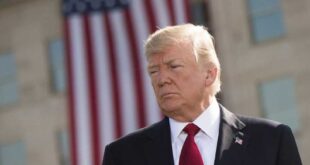Kuzaima Rahman
Confucianism is a philosophical thought that is essentially based in social values, harmony, collectiveness and moral values. It began as a philosophical thought in 400 BCE China. Confucius lived through the time period when Zhou dynasty took over China and there was a warring state overall. China practices Confucianism even today. Not only does it practice it, as a rising global power, China is also committed to export this Chinese philosophical thought across the globe. The road towards global dominance doesn’t include only hard power i.e., military buildup. China knows the significance of the soft power and the cultural dominance is one the major elements of the soft power. Through the establishment of Confucius institutes in Pakistan and many other countries, China is spreading its Confucius values of correct behavior, obedience to hierarchy and ethics. In the five key relationships defined by Confucius one is between the ruler and subject which is hierarchical and is based on respect and obedience.
CHINESE SHARP POWER
Slowly, but surely the world is changing. The confidence that people had in the democracy is wavering which means that the guardians of democracy and its values are weakening. On the contrary the authoritarian leaders are gaining more favor in the world. The foreign influence in domestic affairs is becoming inevitable due to the enhanced and accelerated pace of globalization. Two of such influencing states are China and Russia. China has become a transnational force that has the capability to influence the open societies. Sharp power is exercised through media, academia, economy and technology. The Chinese sharp power aims at filling the vacuums in filling the local reporting outlets with the content from its state media outlet. In case of academia; the universities, think tanks and publishers rely on the collaboration that is provided by Chinese illiberal actors leading towards the foreign influence in academia. The Confucius institutes in various universities in Pakistan are also an example of China exercising its sharp power through academia. Similarly, the strategic arrangements with the elites of various countries behind the economic investments is also a way to exercise Chinese sharp power. The authoritarian standard censorship is being promoted through technology at the international level.
CONFUCIUS INSTITUTES IN PAKISTAN
In Pakistan there are a number of Confucius institutes that are funded by China. As a strong ally, Pakistan welcomes these Confucius institutes and programs in its various universities. There is a debate about this Chinese initiative across many countries. Some believe that China uses these Confucius institutes to spy on the countries and to influence the mindsets of the youth. But the others believe that the threat is overestimated. United States has even targeted the Confucius institutes as a tool for Chinese propaganda that has infiltrated the educational institutes and has called the “foreign mission”. Chinese language and culture are the two most important elements of these Confucius institutes. China disregards the allegations of “foreign mission” regarding its Confucius schools and has repeatedly called out United States for being oversensitive to politicize everything.
In Pakistan there are five major Confucius schools operating including the ones in National University of Modern Languages (NUML), University of Sargodha, University of Punjab, University of Agriculture and University of Karachi. Around thirty thousand students in these institutes are learning the Chinese language. With the strong foundations of Sino-Pak relations, these Confucius institutes are anticipated as the foundation of the strong friendship between Pakistan and China that is being passed onto the next generations. The Confucius institutions are facilitating the cultural exchanges for Pakistani students. With the passage of time, these institutions are progressing beyond the Chinese language teachings only. For example, in 2018 in the NUML Confucius institute introduced an undergraduate program called as BS Area Study China. This program offers many courses that enable students to gain knowledge about the multifaceted aspects of Chinese language, arts and culture. Moreover, the students and faculty members from all these Confucius institutes are sent over to China to experience the Chinese culture more closely. After the China-Pakistan Economic Corridor (CPEC) project has begun, the Pakistani universities particularly the ones that are hosting the Confucius institutes have made their research and logistical support and collaboration with the Chinese institutions a top priority. Both Chinese and Pakistani education ministry officials believe that the opening of these Confucian institutes will further strengthen the bilateral relations between Pakistan and China.
ANALYSIS
From the states like Pakistan that are closest allies of China to the states like United States which is the strongest competitor of China, the Confucius institutions are perceived differently along the spectrum from enrich cultural exchanges to “propaganda tools”. Despite Chinese strong emphasis on the Confucius institutions as being non-political in nature, there is no doubt that they are strongly being politicized. But the question is, why is that even bad? When United States embarked upon its mission of democratization and establishment of American Order in the post-cold war international system – it also used the tools of cultural imperialism to spread its values and ideology. China is following a similar course. No country has any restrictions or whatsoever in promoting its culture, values and language as long as the host nations welcome it. We don’t see any Confucius institution around the world that is being operated forcefully. This leaves us with a question that whether the Confucius institutions are criticized because they have imperial tendencies, or they are criticized because they are challenging an already established imperial culture in the world that has long been established by United States? As far as Pakistan is concerned, the Confucius institutions enable the Pakistani students to learn about the rich Chinese culture and language and it will be fruitful for Pakistan and its future generations to familiarize themselves with the culture of their closest ally.
 Geostrategic Media Political Commentary, Analysis, Security, Defense
Geostrategic Media Political Commentary, Analysis, Security, Defense





